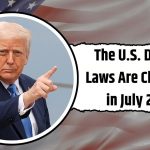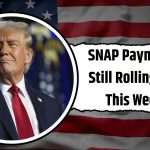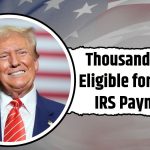In a year marked by rising costs and ongoing economic pressure, the U.S. government has announced a significant lifeline for millions of Americans — a $1,702 stimulus payment scheduled for July 2025. This relief effort is designed to support working families, retirees, veterans, and individuals facing financial challenges due to inflation, housing costs, and healthcare burdens.
Let’s break down what this stimulus payment means, who qualifies, how it will be delivered, and how to stay safe from potential scams.
Why Another Stimulus Payment in 2025?
Although inflation rates have stabilized since their 2022–2023 peaks, many Americans continue to struggle with high utility bills, rising food prices, and student loan repayments. In response, the Biden administration, backed by economic advisors, approved a new round of payments to stimulate spending and provide direct relief to those most in need.
Unlike broader programs in previous years, this payment is more targeted, focusing on the groups that continue to feel the pinch — low-income households, Social Security recipients, unemployed individuals, and veterans.
Who Is Eligible for the $1,702 Stimulus?
Eligibility for the $1,702 payment is determined based on income and benefit status. If you fall into any of the following categories, you are likely to qualify:
- Single taxpayers earning up to $75,000 per year
- Married couples filing jointly with incomes up to $150,000
- Heads of household earning up to $112,500
- Individuals receiving Social Security, SSDI, SSI, or VA benefits
- Unemployed Americans actively receiving benefits through June 2025
- Families enrolled in federal support programs such as SNAP, TANF, or Medicaid
Families with children or dependents may receive additional support, though final payment amounts are based on IRS and benefit program records from 2024 tax returns.
Important Note: No application is needed. The IRS and federal agencies will automatically issue payments based on your most recent data.
Full Payment Schedule – July 2025
The U.S. Treasury and Internal Revenue Service (IRS) have laid out a three-phase disbursement schedule to manage the rollout across different recipient groups.
Phase 1: Direct Deposits (July 15 – July 19, 2025)
If you’ve previously received tax refunds, Social Security, or VA benefits via direct deposit, you’re likely in this phase. Funds will be transferred electronically, and most recipients will see the money within 3 to 5 business days of processing.
Phase 2: Paper Checks (Starting July 22, 2025)
Households without bank account details on file with the IRS or those who opted for paper checks will begin receiving their payments by mail. The checks will be mailed in ZIP code batches over a two- to three-week period.
Phase 3: Prepaid Debit Cards (July 29 – August 5, 2025)
Some recipients, especially unbanked individuals or those with unstable mailing addresses, will receive the payment via Economic Impact Payment (EIP) debit cards. These prepaid cards work like standard debit cards and come with full usage instructions.
How to Track Your Payment
To help recipients monitor their payment, the IRS has reactivated its “Get My Payment” portal. Through this tool, you can:
- Check the status of your payment
- Confirm your bank or mailing information
- View estimated delivery dates
For seniors or individuals without internet access, the IRS has partnered with public libraries and community centers to provide in-person assistance throughout the month of July.
Real Americans, Real Impact
For millions, this payment is more than just a deposit — it’s a lifeline in tough times.
Carmen Lopez, a retired school teacher from Albuquerque, said, “This stimulus check is going straight toward my utility bills and medications. I’ve been cutting corners for months. It’s a relief to know help is coming.”
Tyrell Jenkins, a single father in Detroit, shared his plans: “The $1,702 means my daughter gets school supplies, shoes, and groceries. It gives me breathing room.”
These stories remind us that behind the numbers are real lives and urgent needs — and the stimulus payment serves both economic and emotional relief.
Be Aware: Scammers Are Circulating
Unfortunately, stimulus disbursements often trigger a rise in fraudulent activity. The IRS and consumer watchdog groups urge recipients to remain vigilant.
Watch for these red flags:
- Calls or texts claiming to be from the IRS
- Requests for your Social Security Number or bank login details
- Emails asking for payment to “release” your stimulus
- Fake websites mimicking IRS.gov
Official stimulus updates will only come from verified IRS sources or through direct mail. If you receive a suspicious message, report it to IRS.gov/phishing or your local law enforcement.
No Action Required – Avoid Middlemen
Some unofficial websites and social media pages may offer “application help” in exchange for fees. Remember:
- The IRS does not charge fees
- You do not need to fill out any special forms to receive this payment
- Your 2024 tax return or benefit status determines eligibility
What This Means for America
The $1,702 stimulus check reflects more than just policy — it’s a reaffirmation that economic hardship is not invisible and that recovery must be inclusive.
For many Americans, especially in communities where inflation and unemployment still linger, this stimulus is a sign of hope — a small but impactful gesture that helps make rent, buy medicine, or prepare kids for school.
As the July 2025 rollout begins, the payments are expected to boost not just household budgets, but also local economies, supporting small businesses, services, and community resilience.








